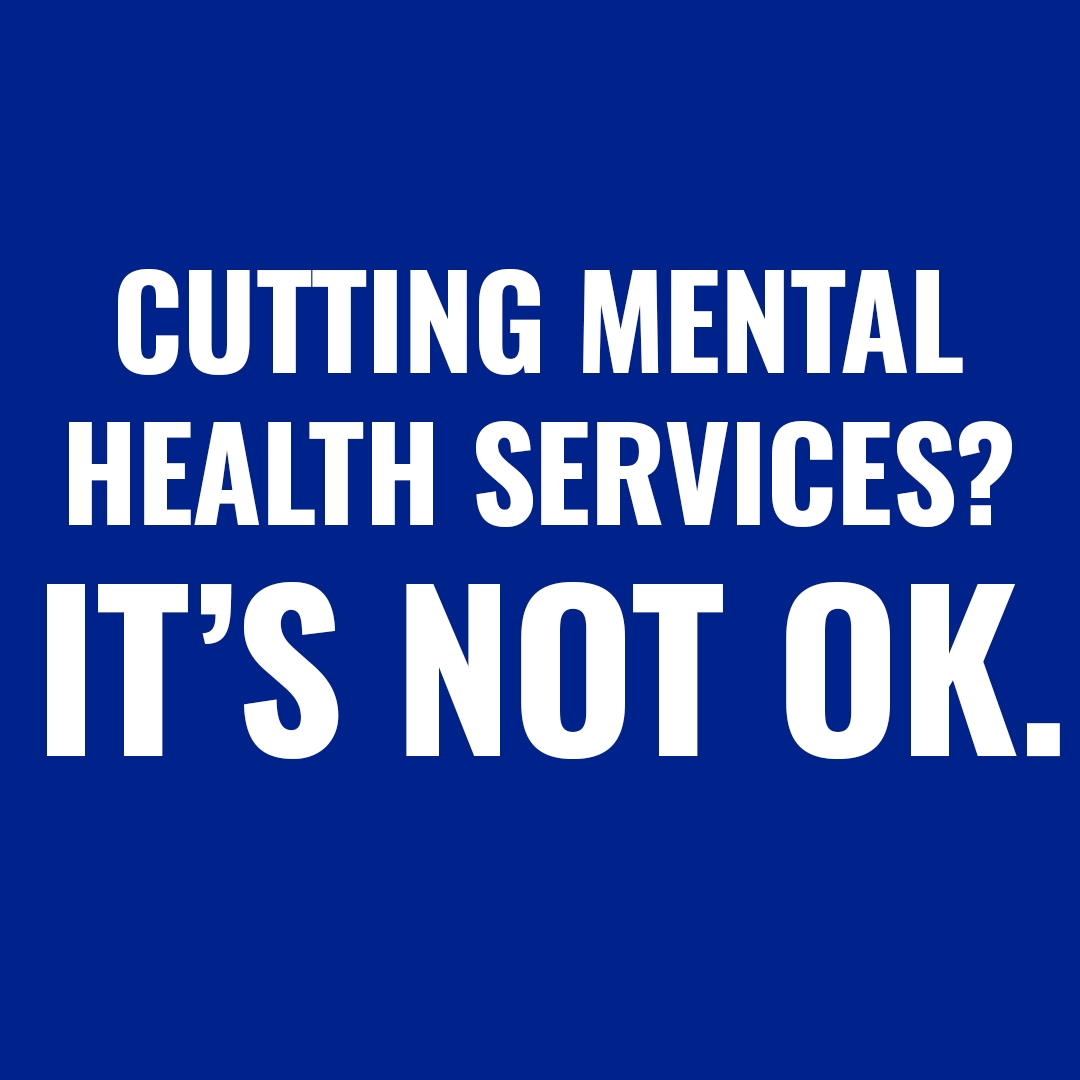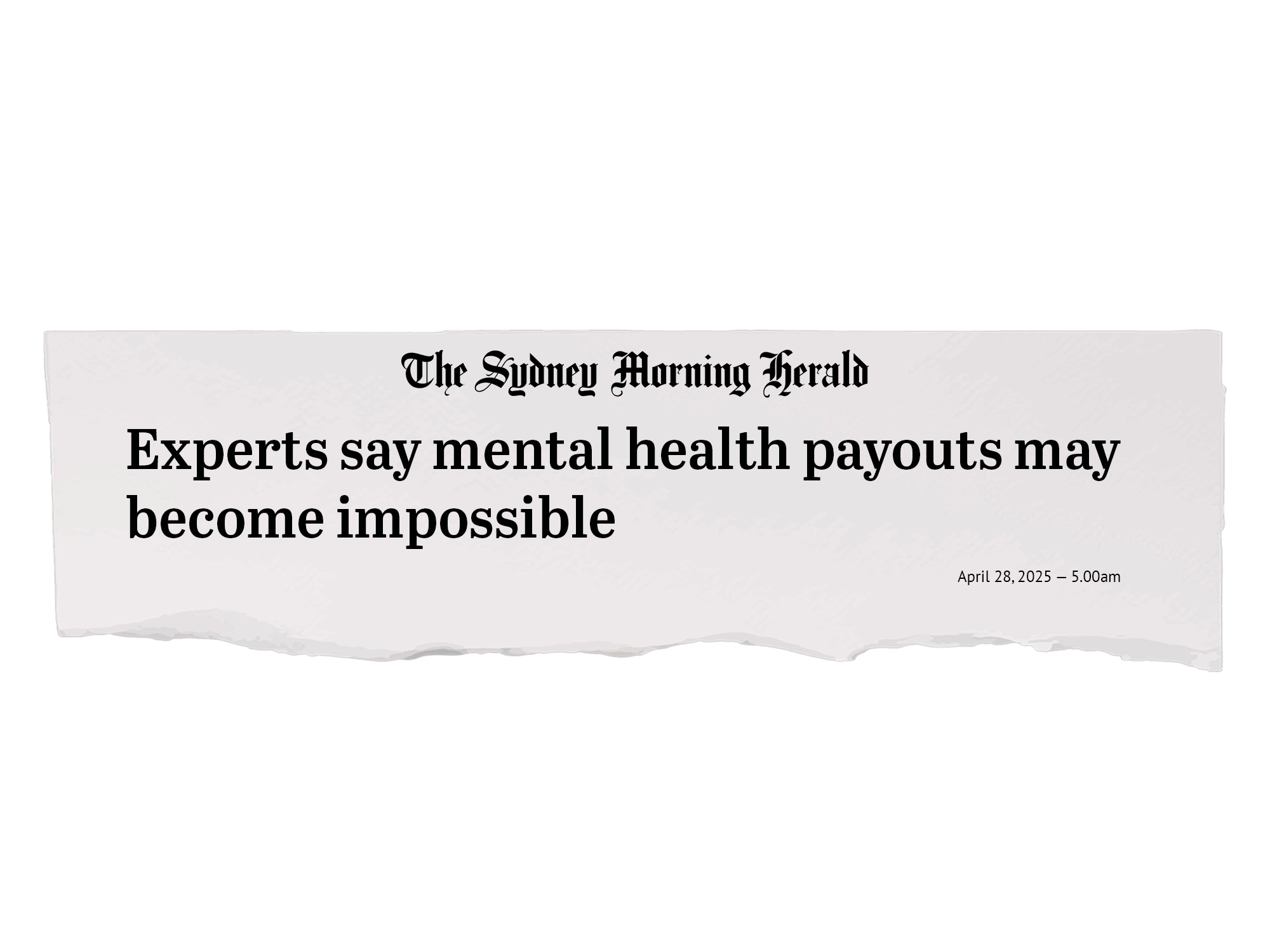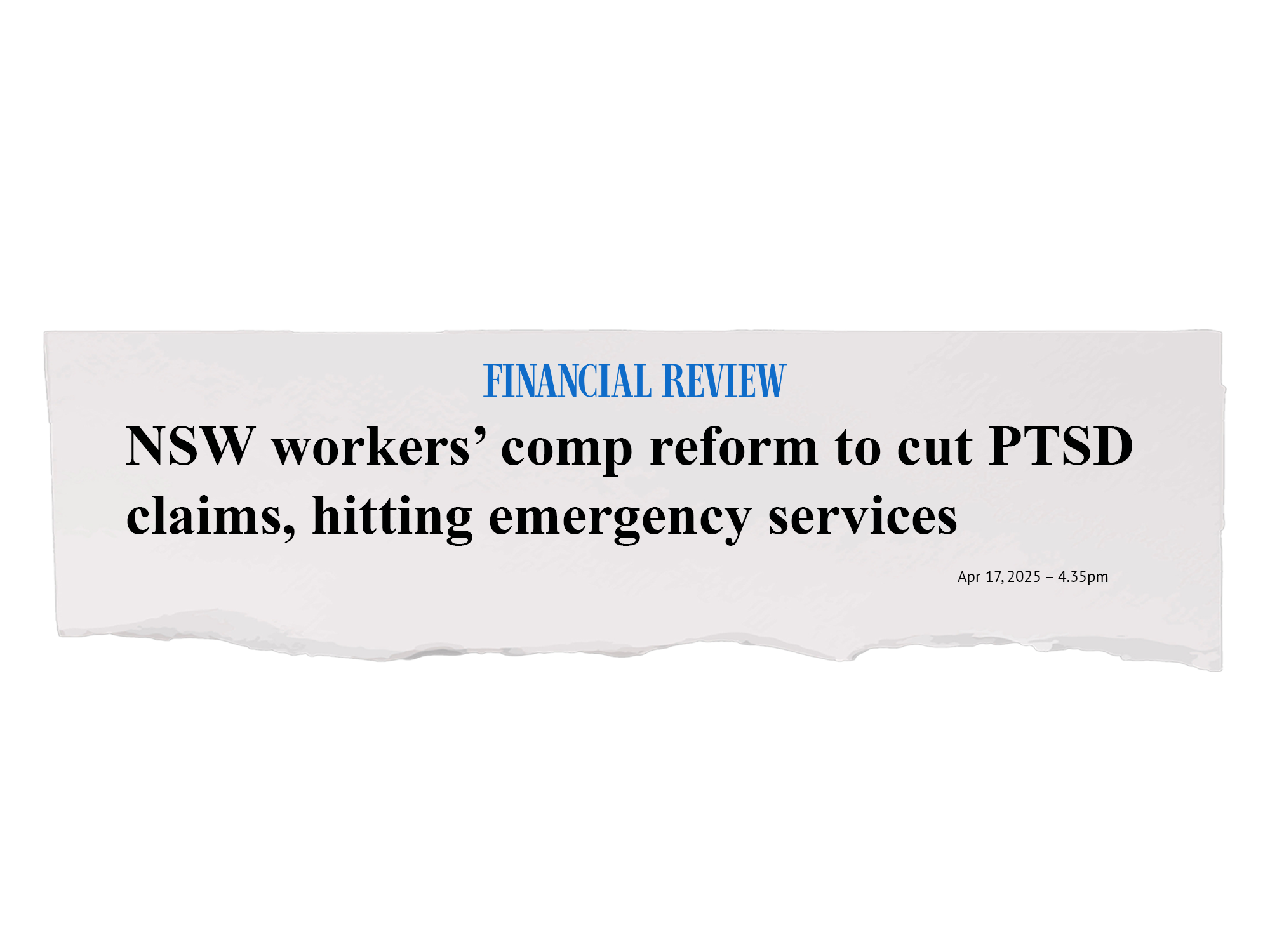The NSW Treasurer has proposed extreme changes to the workers compensation system.
He is proposing to make it harder for seriously injured workers to access mental health benefits and support.
This proposal means:
1. Forcing workers who suffer bullying in the workplace to go through lengthy and expensive legal loopholes to access treatment and support.
2. Making it almost impossible for seriously injured workers to receive longtime care and support.
3. Declaring that serious workplace injuries caused by work pressure and burnout can’t be compensated.
This will mean that our essential workers – doing some of the toughest work-will be significantly cut off from access to immediate and long-term support and compensation that they need. These changes will affect everyone including our child protection officers, nurses, health workers, aged care workers, retail workers, prison officers, and teachers – who disproportionately need to access support for psychological injuries due to the nature of their work.
NSW Treasurer Mookhey might want you to believe that these changes are about stopping people getting injured – but really it is to plug his budget black hole.
Tell him that trying to save money at the expense of mental health is not ok.
Mental Health Matters!
Mental health is just as important as physical health – and yet the Government is trying to make it harder to access compensation and support for psychological injuries only. Our healthcare system is already on the brink of collapse. Introducing these changes at a time when psychologists in the NSW public system are underpaid and overworked is a recipe for disaster.
Saving lives is more important than saving costs.
The Treasurer’s proposal will undoubtedly negatively impact the lives of essential workers. Our front-line workers are the ones most at risk of experiencing psychological injuries at work. This proposal will disproportionately impact the lives of workers in female-dominated workforces, such as nurses and teachers, as well as emergency workers.
Fix the public sector first!
The NSW Government is the state’s biggest employer, and some of the worst-affected workers come from healthcare, education, and emergency services. Stress, bullying, and burnout are rampant in these sectors—yet the Government is blaming workers instead of fixing the leadership failures causing the problem. The NSW Auditor-General’s 2023 report found that workplace bullying and excessive workloads were major contributors to public sector psychological injuries (NSW Audit Office).
There are better ways forward.
We know that the workers compensation system in NSW is broken and in desperate need of reform. But workers deserve better than these changes. They deserve a system that treats mental health seriously. To fix the system, we must focus on prevention.
Here are three common-sense alternatives that the government could implement:
Focus on prevention and Work Health and Safety
The NSW Government needs to focus on addressing the safety hazards in our workplaces to prevent injuries that leave workers dependent on mental health care and support. The NSW industrial umpire should be allowed to step in and fix safety issues when they are raised by workers in union, like in Queensland and South Australia. Additionally, unsafe employers should be forced to follow the official Codes of Practice on how to manage their safety hazards, like in Victoria.
Make the system more efficient
The NSW Government can save millions of dollars by regulating insurance companies to prevent them from wasting taxpayer money and ripping off workers. In recent years, fees paid by the Government insurer to outsourced claims managers has increased 40% and spending on labour-hire increased to over $100 million per year (NSW Auditor General 2024). The expansion of private insurance companies is also driving up costs and hurting workers. This money should be spent on mental health instead.
Incentivise good employers, punish the bad ones
Bad employers with unsafe workplaces are driving up insurance premiums for good employers who do the right thing. A business’s insurance costs should be based on their safety performance. Additionally, when employers use loopholes to avoid insuring their workers, taxpayers are left with the bill – there should be heavy fines to stop this. As of December 2023, uninsured employers were expected to cost the system around $191 million in unpaid workers’ compensation claims (icare 2023).
What are the specialists saying?
“If all of these proposals were adopted, the overwhelming majority of people with psychological injuries arising within the workplace would not be entitled to make a claim. I can understand the rationale behind seeking to minimise the volume of smaller claims; however, I do not understand the drive to penalise those with a more serious injury.”
-Scott Dougall, partner at law firm Carroll & O’Dea who specialise in workers’ compensation
“I’ve never seen anyone get over 30 percent impairment for a psychological injury. It’s an incredibly high threshold…Where it really hits home is the frontline workers: emergency services, firefighters, police, ambulance and nurses. They’re put in a position where they have no option but to encounter … traumatic scenes, dealing with motor accidents, bodies, injured people… A lot of them end up with post-traumatic stress disorder. They put themselves in harm’s way because someone has to do it.”
-Workers’ compensation lawyer Greg Masselos
“If you’re going to take that step and say ‘we’re increasing it to 30 per cent impairment’, you might as well euthanise the entire scheme and just say: ‘We’re not paying out any claims for any psychological injury’, because that is the effect”
-Psychiatrist Dr Julian Parmegiani, who designed the Psychiatric Impairment Rating Scale used in the workers compensation scheme from the late 1990s




